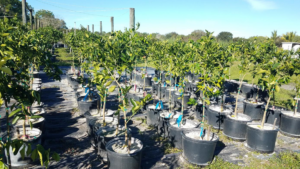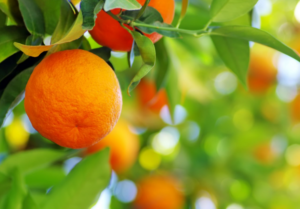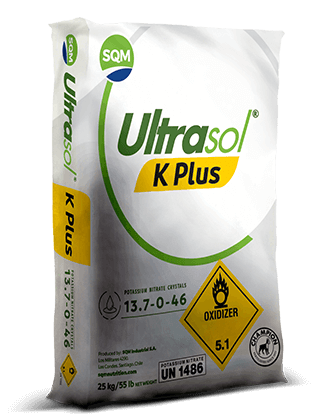Already in 1972 benefits of spraying potassium nitrate were observed. This review was a result of developments during those days in spraying potassium nitrate to correct potassium deficiencies. On calcareous soils it was difficult to raise the K content of citrus leaves beyond very minimal amounts by extensive soil applications of K fertilizers. Citrus leaves analyzing 0,5 to 0,8% K were not uncommon in groves on calcareous soils, although maximum yield of citrus on these soils were associated with leaf K levels of over 1,0%. Accumulation of calcium in the citrus leaves apparently resulted in a physiological deficiency of K when grown on these soils. KNO3 was compatible as a neutral constituent with both fungicides and pesticides commonly used in regular spray programs. Trees with adequate leaf K produced larger oranges, stronger peels, and greater yields, resulting in improved packing and keeping quality for fresh fruit markets. Citrus creasing, particularly present in years of heavy fruit set and nutritional stress, was significantly reduced by foliar application of KNO3.






